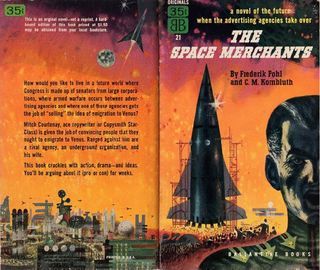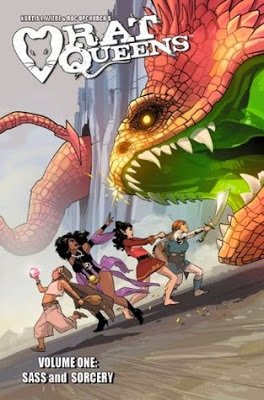aka Summa Rabid Puppies: A Casuistry of the Hugo Controversy
In today’s roundup are Pat Cadigan, Max Florschutz, Craig R., Kevin J. Maroney, Patrick Nielsen Hayden, Vox Day, Peter Grant, Camestros Felapton, Russell Blackford, Nicholas Whyte, Lis Carey, and Spacefaring Kitten. (Title credit goes to File 770 contributing editors of the day Dex and sveinung.)
"I think it matters that some people decided to conspire and steal a ballot" @Cadigan at @BSFA on #SadPuppies @TheHugoAwards
— SCI FI LONDON Film Festival (@scifilondon) June 6, 2015
Max Florschutz on Unusual Things
“The Coming of the Ent March” – June 6
And that’s what the insulars are truly afraid of, and why this year isn’t really the big year for an asterisk. Next year will be that year. Right now, the insulars are shouting as loud as they can, trying to drown out the barking puppies. And you know what? To most Sci-Fi/Fantasy fans, it’s just noise.
But it’s noise that’s waking them up. Making them look around and say “What’s going on here?” It’s noise that’s drawing attention to the Hugos, alerting the silent readers who before, like the reader of my other blog, never even knew that they were allowed to participate. And regardless of who they agree with … a lot of them are going to say “Oh, cool,” and get in line for the chance to support their favorite works.
That‘s what the insulars are afraid of. The Hugos have been a large award for a long time, but they’ve also been voted on by a phenomenally small group of people for an award that’s suppose to represent Sci-Fi/Fantasy as a whole.
Craig R. on The Boston Progressive
“Where Are My Nutty Nuggets? I Want My Nuggy Nuggets!” – June 6
Sad Puppy Central seem to have given up on their first justification, that there was some Super Double-Sekret Social Justice Progressive Cabal that was blocking the Manly Man Rocket Adventure Stories that they Like So Well from making either the nomination lists or the winning slots. Except for Freer, who, I guess, didn’t get the memo.
This is because they actually swamped the nomination choices. Now, this has got to be embarrassing, if you’re all fired up to crow about having Proof, I tell you! Proof! That it’s all a fraud and that we couldn’t get on the ballot ’cause there is no way that we could succeed in gaming the system. There’s no way that simple a cheat can get us on the ballot….
Uhh, why does the ballot look like this?
The latest reason put forth for poor prior puppy performance in the ballot is that there has been this long-running con, where each year the convention committee for the WorldCon is purposely making it hard for people to find out how to nominate and vote!
Yeah, that’s it! Well, lets look at the websites for the past 4 world cons:….
Kevin J. Maroney in a comment on “The Puppies of Terror” at New York Review of Science Fiction – May 30
The only substantial regret I have about my editorial is that it moved too seamlessly from discussion of the *Puppy movement to discussion of Panzergroup Asshole, making it seem as if I thought they were the same people. I don’t.
Let me elaborate on Panzergroup Asshole and online harassment. PGA is a real thing–probably 400-500 people who participate in systematic online harassment*, a weapon waiting for a target. There’s a larger body of casual trolls among whom PGA hide–sometimes PGA follow the other trolls and sometimes PGA’s activities attract the other trolls.
*This can run the gamut from purely online attacks like verbal abuse, tweet flooding, sealioning, comment spam, account takeover, and DDOS attack to offline dangers such as publishing personal information, leaking nude pictures, elaborate death threats, bomb threats, credit card fraud, and SWATting. I’ve had multiple friends say to me that they won’t mention certain names online for fear of attracting the attention of GG and the abuse it brings. Using the fear to silence one’s opponents has a name: “terrorism”.
I do not believe the *Puppies–the leaders and most of their supporters–are themselves members of Panzergroup Asshole. However, the Puppy leaders (Correia, Torgersen, and Day) deliberately and repeatedly invited an alliance with GamerGate, a movement inseparable from Panzergroup Asshole.
Asking people to block-vote for the Hugos (as the Puppies did) was a dick move, taking advantage of the good will assumptions inherent in the Hugo process. This is not significantly different in kind from the outright ballot-box stuffing that got Black Genesis and The Guardsman onto the nominee lists in 1987 and 1989. It’s shameful and nasty, and if they had stopped there, the second half of the editorial wouldn’t have been present. But by deliberately positioning themselves as part of GamerGate-writ-large was a step beyond.
And if it’s “assholery” to point out that someone is allying themselves with terrorists–I think I can live with that charge.
https://twitter.com/pnh/status/607380791224619010
https://twitter.com/pnh/status/607380796987555841
https://twitter.com/pnh/status/607380803950112768
https://twitter.com/pnh/status/607380808756797440
Vox Day on Vox Popoli
“Turbo-charging the award pimpage” – June 6
As it happens, I’d been contemplating following the International Lord of Hate’s lead and recusing myself from the ballot in the future, since I didn’t want to end up with more Hugo nominations than the likes of Heinlein, Clarke, and Asimov. That would be ridiculous. However, now that I know the SJWs are preemptively planning to No Award me, I think I would be remiss if I did not consider award pimpage for every single Hugo Award for which I am even remotely eligible for in 2016. Let’s see. In addition to the professional categories, there is Best Fan Writer, Best Related Work, and perhaps I can throw a few doodles together for Best Fan Artist while I’m at it.
https://twitter.com/voxday/status/607225621475958784
https://twitter.com/voxday/status/607247420699865089
Peter Grant on Bayou Renaissance Man
“Is it time to call for a boycott of a mainstream SF publisher?” – June 6
I’ve remained silent about many previous slanders and libels about this situation, but this is just about the last straw. I would very much like to know whether Tor shares and/or espouses the false, slanderous and libelous views expressed by Ms. Gallo. If that company doesn’t take a stand against such lies, or even chooses to remain silent about them (despite their being propagated by one of their editors), then I will have to assume that the time has come to openly call for a boycott of Tor by all objective, non-partisan, independent fans of science fiction and fantasy. I’ll be discussing this option with other SF/F authors (and individuals involved in this controversy) during the coming days, to see whether we can co-ordinate a suitable response.
Camestros Felapton
“A short post about Aristotle and syllogisms” – June 6
So Chris Hensley is right. It isn’t that the system of syllogistic reasoning that Aristotle proposed was wrong but it genuinely has been superseded. The fact that we are using computers to discuss this is partly as a consequence of that. In the 19th and 20th century logic went through a revolution that took it far beyond the simple syllogism. Liebniz, Boole, Frege, Whitehead, Russell, Tarski, Godel made giant leaps and these leaps were not just freaky abstract navel gazing.
Consider this chain: Russel and Whitehead’s Principia inspired Kurt Godel’s incompleteness theorem. Alonzo Church and Alan Turing developed a related theorem that examined incompleteness from the position of an abstract mechanical device. John Von Neumann at around the same time was also looking at logical foundations of mathematics. The jump from freaky-abstract-navel gazing to birth-of-the-modern-electronic computer is almost a direct one.
So what is wrong with syllogisms? Well nothing as far as they go. They adequately describe one form of logical reasoning but it is essentially self limiting. Later Stoic philosophers made significant headway in developing Proportional Logic. Propositional Logic itself has limitations but it allows for more complex arguments to be modeled and to deal with the notion of implication. The basic difference between the syllogistic logic and propositional was the kinds of units that were being used. In syllogisms terms are important. For example take this Syllogism:
- All SJW’s lie
- Camestros is a SJW
- Camestros lies….
Russell Blackford on Metamagician and The Hellfire Club
“Concluding comments on “Best Short Story” – Hugo Awards voting 2015” – June 6
The problem will keep recurring this year: how much stronger might this list (each list) of nominees have been without blatantly political block voting delivered care of the “Puppies” campaigns? We’ll never know. Meanwhile … none of the stories really blew me away, but one came closer than the others. In this company, the standout, for me, was “Totaled”, by Kary English : for its skill and innovation, it will receive my vote. I doubt that any of the others merit such an important international award.
Nicholas Whyte on From the Heart of Europe
“My vote for Best Dramatic Presentation (Short Form), Best Fan Writer, John W. Campbell Award” – June 6
I usually enjoy tracking down the various entries in this category (I rarely have time to watch the movies nominated for the Long Form equivalent). But unfortunately three of the finalists in this category were helped to get onto the ballot by a campaign led by a misogynist racist whose declared intention was to destroy the Hugos. I am not going to vote for them, and am not going to any great lengths to watch The Flash: Pilot or Grimm: Once We Were Gods…..
1: Doctor Who: Listen. In a Doctor Who season with one very low point (Kill The Moon) this was very much a high point, Moffat with some of his best lines – Clara in particular getting some good ones (“People don’t need to be scared by a big gray-haired stick insect but here you are” balanced by “If you’re very wise and very strong fear doesn’t have to make you cruel or cowardly – fear can make you kind”) in a story that actually makes sense and taps into some deep human fears. Gets my vote without any hesitation or special pleading, and I suspect it will win.
Also, just to record a couple of items here which are not worth separate posts: I’m voting No Award for Best Fan Writer, and giving Laura J. Mixon my second preference. I take very seriously Matt Foster’s argument that a ballot with only one non-slate finalist does not offer enough choice to make the award meaningful….
Lis Carey on Lis Carey’s Library
“Dungeon Crawlers Radio” – June 6
http://www.dungeoncrawlersradio.com/
Another Best Fancast Hugo nominee.
This is also an interview podcast, in this case focused on gaming and related subjects. As such, it doesn’t really speak much to me, as this is not an area of interest for me. However, it is fairly cleanly and professionally produced, even managing an effective interview presentation in the midst of the chaos of Salt Lake Comic Con. I would expect this to be at least very interesting for viewers more into gaming. The knowledge of the interviewers I can’t seriously assess, but they at least seemed knowledgeable and reasonable to me.
If gaming is your thing, you should at least give this a try, if you haven’t seen it yet.
Lis Carey on Lis Carey’s Library
“Ancillary Sword (Imperial Radch #2), by Ann Leckie (author), Adjoa Andoh (narrator)” – June 6
There’s a lot going on here, in character development, revealing more about the history and culture of the Radch, and action as the conflict between the Mianaais and even older tensions in the Radch empire play out.
I’m looking forward to the third volume, Ancillary Mercy.
Recommended.
Most of the #HugoAwards novelette stuff is of 1 of 2 types: great start to a novel w/ abrupt ending or something best left unpublished.
— Milton Friedman Stan Account (@AndIllWhisperNo) June 7, 2015
Spacefaring Kitten on Spacefaring, Extradimensional Happy Kittens
“’The Triple Sun: A Golden Age Tale’ by Rajnar Vajra” – June 6
Slates: Rabid Puppies & Sad Puppies
“The Triple Sun: A Golden Age Tale” is a lightweight adventure story that — according to its subtitle — tries to take us back to the Golden Age of science fiction. There are space cadets who get into trouble because of a fight and have to make it up for it by going on an expedition to an alien world, the inhabitants of which the Earth scientists have a hard time understanding.
Will McLean on A Commonplace Book
“Ancillary Justice and Ancillary Sword” – June 6
It requires the usual suspension of disbelief required for interstellar empires, FTL, artificial gravity and decanting extensions of machine intellects into human bodies; in short, what is normally required for space operas.
Camestros Felapton
“A warning from the future” – June 6
[A satire that lists future Hugo slates.]
“Dear traveler from the future” I cried “You are in need of medical care! I would take you inside but I’m afraid that Timothy has a thing abut people he doesn’t know arriving unannounced. Let me fetch you a pillow and a glass of water.”
“No…” she gasped “it is too late for me…I have come to bring you a warning”.
She was briefly consumed by a coughing fit, after which she spat out a green mess of mucus and fundamental void particles.
“They didn’t realize…they tried to tinker with the Hugo rules…but instead…” she paused again
“Yes? The rules? Is this the WorldCon 15 rules you mean?” I inquired as gently as I could despite my ankle pain and a croquet hoop digging into my thigh unpleasantly.
“The horror of Spokane they called it. The rule changes…they went wrong…a memetic virus was introduced…it spread through blog posts…the world became consumed by puppy-slates”




